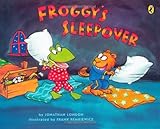Saturn Regains Its "Moon King" Status With 62 New Moons
Language
Reading Level
Listen to Article
Alignment

Earlier this year, Saturn lost its long-standing status as "moon king" to Jupiter after 12 new moons were added to the gas giant's 83 known satellites. But Jupiter's victory was short-lived. The ringed planet has reclaimed the title with the discovery of 62 additional moons. Saturn now boasts 145 known moons and is the first and only planet in the solar system to surpass 100 moons.

Dr. Edward Ashton and his team revealed the discovery on May 11, 2023. They detected the moons using three years of data from the Canada-France-Hawaii Telescope in Hawaii. The scientists say the 62 satellites are all "irregular moons." This means they follow distant, elliptical orbits around their host planet. Many also move in the opposite direction of Saturn's rotation. The ringed planet now has 121 irregular moons and 24 regular moons. The smallest of the newly announced moons is just 1.6 miles (2.5 km) wide. In contrast, Saturn's largest moon, Titan, has a diameter of 3,200 miles (5,149 km).
Irregular moons tend to clump together in groups with others in their orbit. Saturn has three such groups. They include the Inuit group, the Gallic group, and the Norse group. All of the new moons belong to one of the three groups. The researchers believe the small moons in the groups may all be from a larger parent moon that broke apart millions of years ago.

"As one pushes to the limit of modern telescopes, we are finding increasing evidence that a moderate-sized moon orbiting backward around Saturn was blown apart something like 100 million years ago," says Brett Gladman, an astronomy professor at the University of British Columbia.
Resources: Livescience.com, Smithsonianmag.com, sciencedaily.com, science.ubc.ca

Get the Workbook for this article!
Workbook contains: Article, Reading Comprehension, Critical Thinking Questions, Vocabulary in Context (+ answers), Multiple Choice Quiz (+ answers), Parts of Speech Quiz (+ answers), Vocabulary Game (+ answers)Cite Article
Learn Keywords in this Article
56 Comments
- ws203942about 1 yearThis article is very interesting!
- fallenstarover 1 yearI bet it'll by next year it will have another 10 moons
- ws203942about 1 yearsame! it is amazing that Saturn keeps gaining moons so fast!!!
- cutepinkloverover 1 yearWow
- ap964studentsover 1 yearWOW!!!!!!!!!!!!!!!
- neymarjrjrover 1 yearWOW! this was such an incredible article!!
- rosco164over 1 yearThese moons just keep coming!
- zzyover 1 yearThese new moons just keep on coming as Saturn is near the asteroid belt where moons are made from those asteroids.
- adroit_avimimusover 1 yearYup! And the fact that Saturn's gravitational pull is so strong also helps a lot when getting new moons to orbit it!
- blackandpinkgrlover 1 yearWow so interesting
- cottonbunny16over 1 yearWow
- gus2078over 1 yearI wish I could be a scientist and maybe find a new moon someday.
- ayahoyaover 1 yearWow that shocked me... 145 MOONS?!?!




